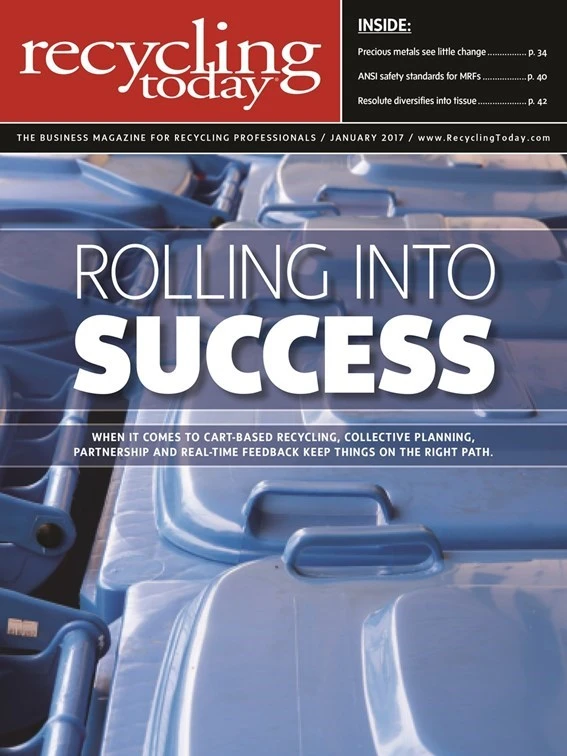ISRI board of directors approves plastic scrap specifications
According to the Institute of Scrap Recycling Industries (ISRI) “Leadership Update” email dated Nov. 9, 2016, the organization’s board of directors has approved changes to its postconsumer plastic scrap specifications.
ISRI’s Plastics Division approved the series of new, revised and deleted plastic scrap specifications prior to their presentation to the association’s board of directors at its Nov. 5, 2016, meeting in Salt Lake City.
ISRI says the changes are intended to better reflect the commodities that are being traded in the marketplace to assist members in buying and selling. The proposed plastic specification changes were developed in consultation with plastic scrap recycling industry members and other plastics industry associations.
The specifications, which can be viewed at www.isri.org/docs/default-source/commodities/plastic-specifications.pdf?sfvrsn=6, include renamed and revised descriptions for PET (polyethylene terephthalate) bottles, HDPE (high-density polyethylene) color bottles, tubs and lids, tubs and lids with bulky rigid plastic, Nos. 1-7 bottles and small rigid plastic, Nos. 3-7 bottles and small rigid plastic. MRF film was renamed to MRF curbside film, while HDPE natural bottles and mixed bulky rigids retained their names but were revised.
New specifications were added for PET thermoforms, HDPE injection bulky rigids, polypropylene (PP) small rigid plastic, PP all rigid plastic, Nos. 1-7 bottles all rigid plastic, Nos. 3-7 bottles and all other rigid plastic, PE (polyethylene) retail mix film, LDPE (low-density polyethylene) colored film, LDPE furniture mix and PE clear film.
Specifications for bulky rigid, premium film, A+ grade film, A grade film, B grade film and C grade film were deleted.
In the same “Leadership Update” email, ISRI announced that its ISRI’s MRF (material recovery facility) Council passed Inbound Scrap Specifications and MRF Glass Specifications during the organization’s Fall Board and Governance Meetings.
The Inbound Scrap Specifications are intended to “give MRFs a tool to help educate municipalities about the current state of the industry and which materials technology has trouble screening out,” ISRI says. The specifications are “in response to the difficulty MRFs are having in sorting out materials, such as glass, aseptic packaging, film and other materials communities are adding to curbside collection programs.”
The MRF Glass Specifications are intended to help buyers and sellers of this material develop a common understanding of what MRF glass is as well as acceptable levels of contamination, quality limits and other factors that help determine the value of the material, ISRI says.
The organization says it anticipates that its Paper and Plastic divisions will hold a conference call to allow members to deliberate on the specifications. Once the specifications have passed each division, they head to the board of directors for review and deliberation in April 2017.
More information on ISRI’s MRF Council is available from Jonathan Levy at jonathanlevy@isri.org.

Explore the January 2017 Issue
Check out more from this issue and find your next story to read.
Latest from Recycling Today
- Phoenix Technologies closes Ohio rPET facility
- EPA selects 2 governments in Pennsylvania to receive recycling, waste grants
- NWRA Florida Chapter announces 2025 Legislative Champion Awards
- Goldman Sachs Research: Copper prices to decline in 2026
- Tomra opens London RVM showroom
- Ball Corp. makes European investment
- Harbor Logistics adds business development executive
- Emerald Packaging replaces more than 1M pounds of virgin plastic





